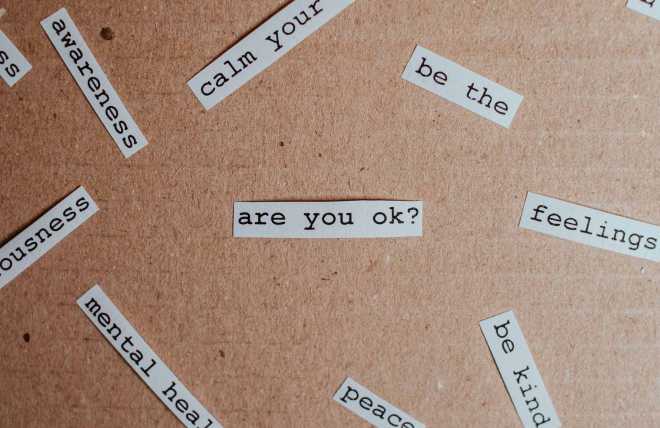Building a Personal Brand: Finding the Right Balance
Showcasing Your Unique Identity and Professionalism
Balancing Personal and Professional Content and Building a Personal Brand
In today's digital age, personal branding has become a crucial part of our professional and personal lives. With social media and other online platforms, we have a unique opportunity to create and promote our personal brand. However, with this opportunity comes the challenge of balancing personal and professional content. In this post, we'll explore the importance of personal branding and the need to balance personal and professional content on social media platforms.
Understanding Personal Branding
Personal branding is the process of creating a unique image or identity that identifies and differentiates you from others. It's how you promote yourself and your career or business. Your personal brand reflects who you are, what you stand for, and what you can offer to the world.
A strong personal brand can help you stand out in a competitive job market, increase your professional network, and even lead to new career opportunities. In short, personal branding is about building your reputation and credibility.
Balancing Personal and Professional Content
When it comes to personal branding, the challenge is to balance personal and professional content on social media platforms. Social media is a great way to showcase your personal brand and engage with your audience. However, it's important to be mindful of what you post and the message it sends to your followers.
Tips for finding the right balance include:
- Use privacy settings to limit personal content to close friends and family
- Avoid posting controversial or offensive content that may offend potential employers or clients
- Keep a balance between personal and professional content
- Be mindful of the tone and message of your posts
Posting too much personal content on a professional platform can harm your personal brand and send the wrong message. Therefore, it's essential to be mindful of the content you post and ensure it aligns with your personal brand.
Tips for Building a Personal Brand
Now that we understand the importance of personal branding and balancing personal and professional content, let's explore some tips for building a strong personal brand:
Identify Your Niche and Target Audience
Identifying your niche and target audience is the first step in creating a personal brand. Determine what sets you apart from others and who your target audience is. This helps you tailor your message to resonate with the right people.
Determine Your Unique Value Proposition
Your unique value proposition is what makes you stand out in a crowded market. It's what you bring to the table that nobody else can. Identify your unique skills, experience, and strengths and use them to create a compelling brand message.
Create a Consistent Brand Message Across All Platforms
Consistency is key to building a strong personal brand. Use the same branding elements, such as color scheme, logo, and messaging, across all social media platforms and your website.
Utilize Social Media to Build Your Personal Brand
Social media is a powerful tool for building your personal brand. Choose the platforms that resonate with your target audience and create content that aligns with your brand message.
Engage with Your Audience and Build a Community
Engagement is key to building a strong personal brand. Respond to comments, share relevant content, and participate in online discussions to build a community around your personal brand.
Maintaining a Personal Brand
Building a personal brand is just the beginning. To maintain your brand, you need to stay relevant and adapt to changes in the market. This means keeping up with industry trends and using new technologies to promote your personal brand.
Authenticity is also crucial to maintaining your personal brand. Be true to yourself and your brand message to maintain your credibility with your audience.
Conclusion
Balancing personal and professional content on social media platforms is crucial to building a strong personal brand. By following the tips outlined in this post, you can create a unique personal brand that reflects who you are and what you stand for. Building a personal brand is an ongoing process that requires consistency, engagement, and adaptability. With the right approach, you can use social media and other online platforms to create a positive image and reputation that sets you apart from others.
Remember, your personal brand is your reputation. It's what people think of you and how they perceive you. By taking control of your personal brand and being mindful of the content you post, you can build a strong online presence that can help you achieve your personal and professional goals.
In summary, personal branding is a powerful tool for professionals and individuals who want to establish themselves in today's digital age. Balancing personal and professional content is essential to building a personal brand that reflects your unique identity and value proposition. By following the tips outlined in this post, you can create a personal brand that stands out and helps you achieve your personal and professional goals.
Your personal brand is what people say about you when you're not in the room - so make sure they say good things.
Faq
- Q: What is personal branding?
A: Personal branding is the process of creating a unique image and reputation that represents who you are and what you stand for. - Q: Why is personal branding important?
A: Personal branding is important because it helps you stand out from the crowd, creates a strong reputation, and can help you achieve your personal and professional goals. - Q: How do I balance personal and professional content?
A: Start by defining your personal brand and creating a strategy for your online presence. Separate your personal and professional accounts, and be mindful of the content you post. - Q: How can I create a strong personal brand?
A: Be authentic, consistent, and engaged. Use social media and other online platforms to showcase your skills and expertise. Collaborate with others and participate in online communities. - Q: Can personal branding be harmful?
A: Personal branding can be harmful if it is done inauthentically or if it compromises your personal or professional values.
Pros and Cons
Pros:
- Helps you stand out from the crowd
- Creates a strong reputation
- Can help you achieve personal and professional goals
- Increases your online visibility
- Gives you control over your online presence
Cons:
- Personal branding can be time-consuming and requires consistency
- If not done authentically, it can harm your personal or professional values
- Can be overwhelming for some individuals who prefer to keep their personal and professional lives separate.

